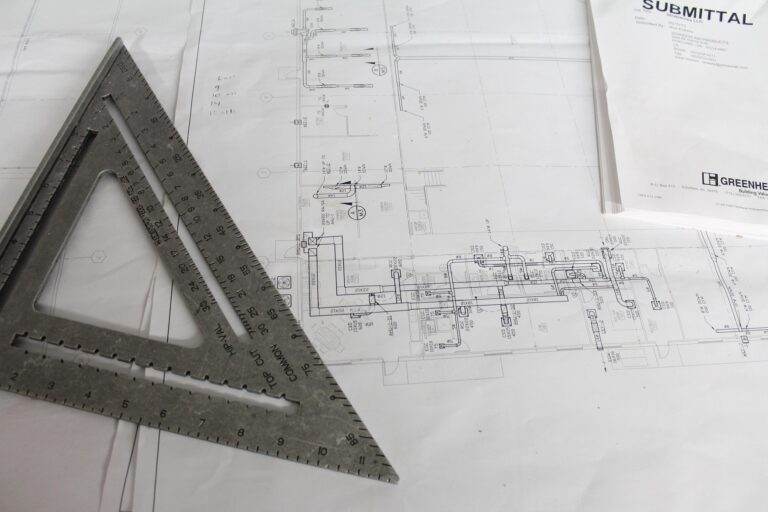The 90-Day Success Blueprint: A Guide to Thriving as a New Engineering Manager
Posted on: April 5, 2023, by : Tuesday
The 90-Day Success Blueprint: A Guide to Thriving as a New Engineering Manager
Develop plans but remain flexible.
Flexibility is key because unexpected challenges and opportunities will inevitably arise during your first 90-days as a new engineering manager. It is important to be open to feedback and adjust your plans as needed. Collaborate with stakeholders, such as your team members, peers, and senior management, to better understand their expectations and align your goals with theirs. As a new engineering manager, it is crucial to be flexible and quickly accommodate unforeseen challenges and opportunities that may arise during projects and activities. It is essential to adapt and be open to feedback from stakeholders. Having adaptable plans allow for quick adjustments and help ensure that everyone stays on the same page and projects remain on schedule. Collaborating with stakeholders and getting their input can provide valuable insight into their expectations, concerns, and goals, and can help to identify any potential roadblocks that may hinder a project’s progress. Additionally, building strong relationships with stakeholders can foster a sense of ownership among team members, create a positive work environment, and lead to a more successful outcome.
Collaborate with others.
Collaboration is critical to success. Working with other managers can help you identify areas of overlap and create a cohesion within the organization. Building collaborative relationships with other managers is an essential component of achieving your goals as an engineering manager. For example, as an engineering manager, building relationships with other departmental managers such as the marketing, sales, and finance managers can lead to a more efficient process of releasing a new product into the market or securing new clients and projects. Collaborating with marketing and sales managers can help in identifying target customers and creating an effective marketing strategy. At the same time, having a good relationship with the finance manager can ensure projects stay within budget and avoid any financial roadblocks.
“Collaboration is the cornerstone of success in engineering. No single engineer has all the answers. Working together with a diverse group of professionals helps create innovative solutions and achieve superior results.” – Karen Bartleson, IEEE President 2017-2018.
Establish expectations and plan for success with your supervisor.
As a new engineering manager, building a strong relationship with your supervisor is crucial for achieving your goals. Establishing clear expectations and planning for success with your supervisor can help to create a positive work environment and ensure that you are working towards a common goal. To establish a strong relationship with your supervisor, it is important to establish regular communication channels early on. This will help you to stay aligned with your supervisor’s priorities and receive timely feedback on your performance. Short-term action steps that you can take include scheduling regular check-ins with your supervisor to discuss your progress, goals, and any challenges you may be facing. Additionally, you can collaborate with your supervisor on setting achievable goals that deliver quick wins to build trust with your team and set the foundation for achieving long-term goals. Another short-term action step is to keep your supervisor informed of your progress regularly. By doing so, you can receive guidance and support when needed, and demonstrate your ability to manage projects effectively.
Communicate effectively.
Understand your supervisor’s communication style and preferences and adapt your behavior accordingly. Build a relationship with your supervisor by asking for feedback and seeking their guidance on challenging issues. Familiarize yourself with the organization’s processes and resources, including human resources policies, training opportunities, and mentorship programs.
“Effective communication is key to successful engineering projects. It is essential to share ideas and information, collaborate with colleagues, and ensure that everyone is on the same page to achieve project goals.” – Tom Smith, ASCE President 2020.
As a new engineering manager, effective communication with your team is crucial for the success of any project. Effective communication involves clear and concise messaging, active listening, and timely feedback. It not only helps in building trust and creating a positive work environment, but it also helps in increasing productivity and achieving the desired outcomes. However, there are certain communication pitfalls that a new engineering manager should avoid.
The first pitfall is assuming that the team has the same understanding of the project goals and objectives. To avoid this, the manager should ensure that everyone in the team is on the same page by clearly communicating the project goals, objectives, timelines, and expectations.
The second pitfall is failing to listen actively to the team members. It is essential to listen to the team’s ideas, concerns, and suggestions actively. Active listening can help in building a positive work environment and creating a sense of ownership among team members.
The third pitfall is providing vague or delayed feedback to the team members. Feedback should be specific, constructive, and timely. Vague feedback can lead to confusion and delays, while delayed feedback can cause frustration and demotivation among the team members.
Effective communication is essential for a new engineering manager to achieve project success. Avoiding communication pitfalls such as assuming everyone has the same understanding, failing to listen actively, and providing vague or delayed feedback can help the manager to communicate effectively with the team and achieve the desired outcomes.
Build learning into your plan.
Building learning and development into your 90-day action plan is crucial for effective team management and your professional growth. To achieve your professional development goals, there are several action steps you can take.
First, establish measurable and realistic targets that align with the department’s overall objectives. This will help to ensure that your development goals are relevant and can contribute to the success of the department and organization.
Second, foster a culture of continuous learning and growth within your team by providing opportunities for professional development, mentorship, and training. This can include attending conferences, participating in online courses, or arranging for external training sessions. Encouraging your team to learn and grow can not only improve team performance but also promote employee engagement and retention.
Third, consider setting aside dedicated time for learning and development activities, whether it be weekly or monthly. This will help to ensure that learning and development goals are given the attention they deserve and that they become a regular part of your work routine. By building learning and development into your 90-day action plan, establishing measurable targets, fostering a culture of continuous learning and growth, and dedicating time to your development, you can achieve your professional development goals and support the success of your team and organization.
Recognize employees and create a productive work environment.
As a new engineering manager, creating a productive and enjoyable work environment is essential for building a successful team. To make progress in this area, there are two key steps you can take within your first 90 days.
First, focus on providing regular feedback, recognition, and rewards to your team members. This can be done in various ways such as through one-on-one meetings or during team meetings. Regular feedback can help to boost team morale and motivation by recognizing and valuing the contributions of your team members. Additionally, providing recognition and rewards for good work can help to reinforce positive behaviors and encourage high performance.
Second, foster a culture of collaboration and innovation by encouraging open communication and teamwork among team members. This can include organizing team-building activities, promoting knowledge sharing, and encouraging cross-functional collaboration. By promoting a positive and supportive work environment, you can create a culture that values teamwork, innovation, and success.
By taking these actions within your first 90 days, you can make measurable progress towards creating a productive and enjoyable work environment for your team.
As you embark on your journey as an engineering manager, remember that success comes with a well-thought-out and adaptable plan, effective communication, collaboration with colleagues, continuous learning, and recognition of your team’s contributions. With these tips, you can thrive as a new engineering manager and make a positive impact on your organization.
A New Engineering Manager's 90-Day Success Plan
"Effective communication is key to successful engineering projects. It is essential to share ideas and information, collaborate with colleagues, and ensure that everyone is on the same page to achieve project goals."
Tom Smith, ASCE President 2020 Tweet

